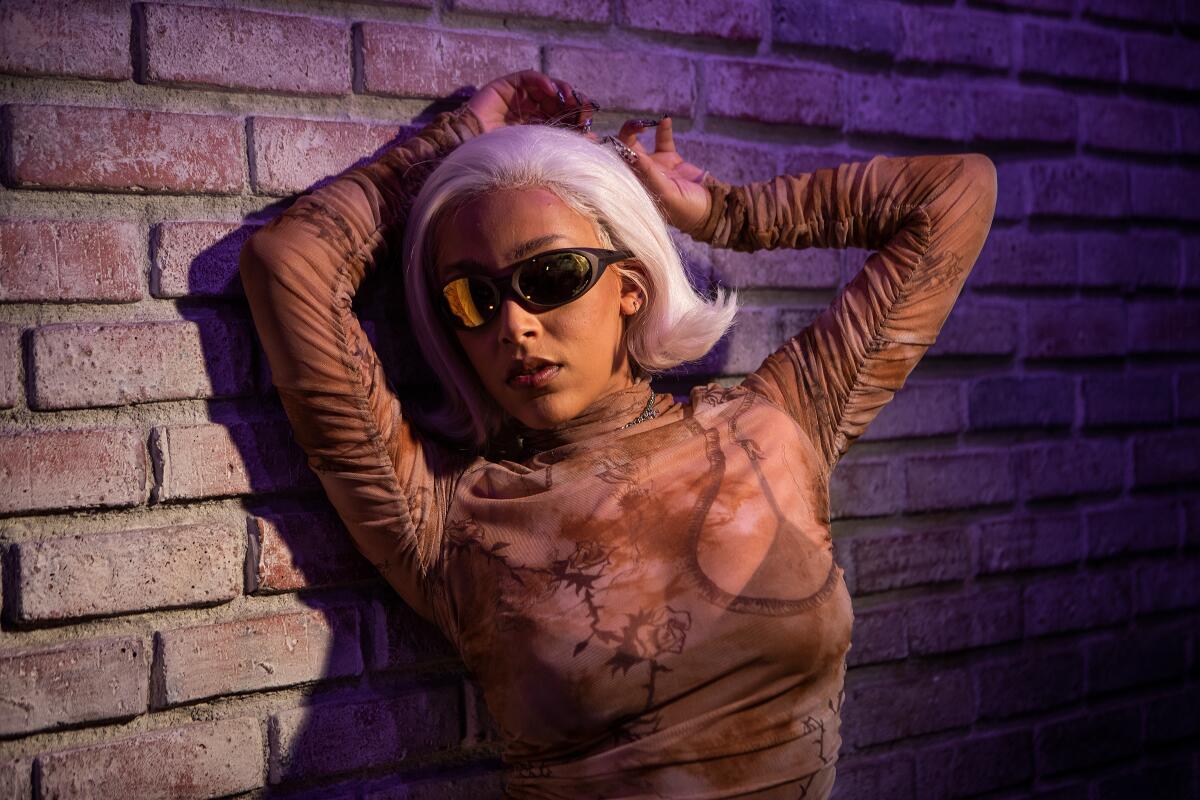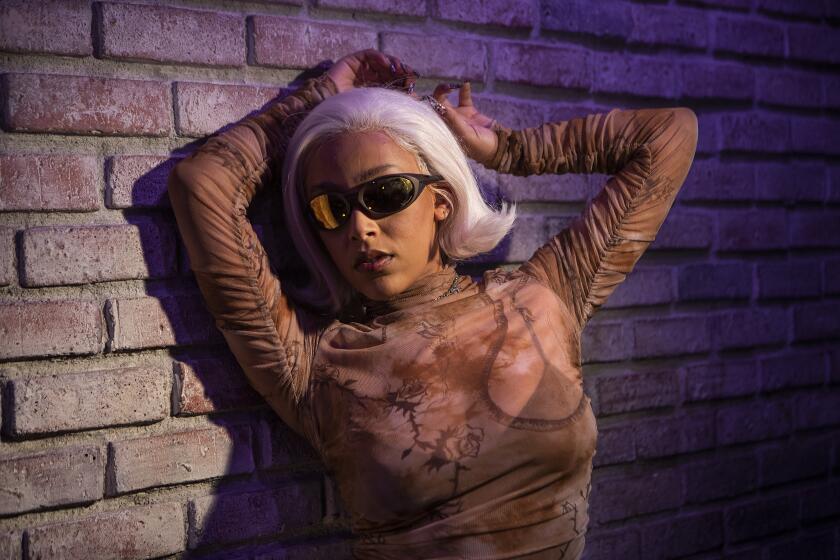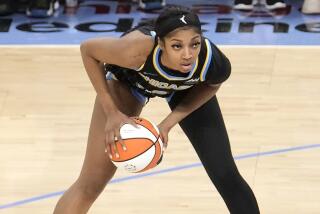Doja Cat denies allegations of racism in chat rooms: ‘That’s not my character’

- Share via
Following a backlash over allegations of past racist remarks, L.A. singer and rapper Doja Cat has issued a public apology on Instagram.
The “Say So” hitmaker, 24, came under fire late last week after videos surfaced of her participating in alt-right chat rooms, where she made sexual comments to men who were reportedly white supremacists. She was also criticized for a 2015 song with an offensive title.
“I understand my influence and impact and I’m taking this all very seriously,” she wrote in an Instagram post Monday. “I love you all and I’m sorry for upsetting or hurting any of you. That’s not my character and I’m determined to show that to everybody moving forward.
“I’ve used public chat rooms to socialize since I was a child,” she added. “I shouldn’t have been on some of those chat room sites but I personally have never been involved in any racist conversations. I’m sorry to everyone I offended.”
Her response contradicts remarks she made in an interview with Paper magazine in December, in which she admitted to “making offensive jokes” in online chat rooms. “People would pick on me and use horrible, horrible language, just the worst, and I just didn’t understand why people were so crazy on there,” she said in that interview. “So I became the person who would make offensive jokes and do things sort of out of the box.”
Doja Cat (born Amalaratna Zandile Dlamini), who is half black with South African roots, also apologized for a 2015 song titled “Dindu Nuffin,” which people on social media interpreted as mocking the death of Sandra Bland, a black woman who died in police custody in 2015. The title is based on a phrase used to taunt black victims of police brutality.
“As for the old song that’s resurfaced, it was in no way tied to anything outside of my own personal experience,” Doja Cat wrote. “It was written in response to people who often used that term to hurt me. I made an attempt to flip its meaning but recognize that it was a bad decision to use the term in my music.”
The Gen Z rapper known for absurdist viral smashes like “Mooo!” hopes her new album, “Hot Pink,” establishes her as a serious force in hip-hop.
The singer, whose “Say So,” a collaboration with Dr. Luke and Nicki Minaj, hit No. 1 on Billboard’s Hot 100 chart this month, doubled down early Monday morning on Instagram Live, saying the song was “in zero ways connected to police brutality or Sandra Bland.”
“To see a song, my song that I made, connected to an innocent black woman’s death is one of the most awful rumors that I’ve ever encountered,” she said.
“To anybody who I’ve hurt using this term when I used it, it’s because I was in chat rooms all the time and I was kind of locked away,” she added. “I was always on there dealing with people coming at me left and right talking about different slanderous terms after another. The term that I used in the song is one that I learned that day. People were calling me that left and right and I used it in a song.... The song, however, I agree, may be the worst song in the entire world.”
She also took a moment to deny insulting Beyoncé after a video surfaced on social media where she referred to the singer as “Beyonkey.”
“Beyoncé is the cream of the crop,” she said. “Beyoncé is the reason why I believe I can be who I am. Beyoncé is one of the driving forces of who I am in my career. Beyoncé is undeniably talented, and every time anyone has ever came for Beyoncé I was there. And that’s all I have to say.”
More to Read
The biggest entertainment stories
Get our big stories about Hollywood, film, television, music, arts, culture and more right in your inbox as soon as they publish.
You may occasionally receive promotional content from the Los Angeles Times.












